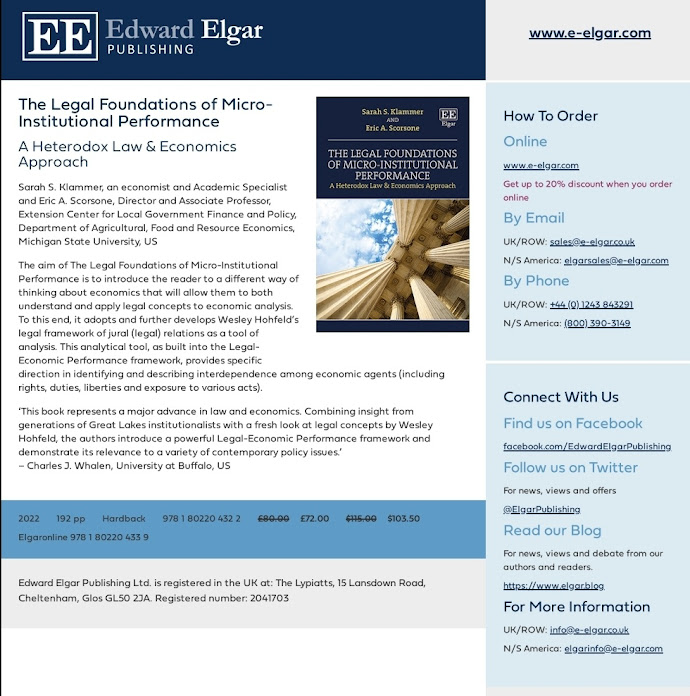Announcing The Legal Foundations of Micro-Institutional Performance

Our book is out, and we are more than ready to share it! After much patience, hard work, and delays on our part (and along the supply chain), The Legal Foundations of Micro-Institutional Performance: A Heterodox Law & Economics Approach is in print and ready for use in advanced undergraduate law and econ classes, heterodox graduate level classes, and by practitioners conducting impact analysis. I encourage anyone interested to click through the hyperlinked text to view the introduction on Elgar's website-- simply click the cover of the book and the front matter will appear. We anticipate numerous reviews in institutional and law and econ journals in the coming months, and are grateful for any and all feedback directed our way. It's our hope that this framework doesn't stop developing here, but rather continues growing like Al Schmid's Situation-Structure-Performance model upon which the Legal-Economic Performance Framework is loosely based, or the application of ...